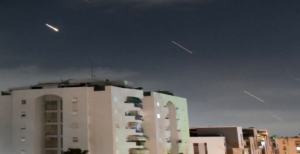Iran Threatens Retaliation After Israeli Attack Kills 12 and Injures Thousands
Iran has vowed retaliation after a deadly Israeli attack on Hezbollah targets, which killed at least 12 people and injured thousands. The explosions, involving pagers, also injured Iran’s ambassador to Lebanon, prompting Tehran to accuse Israel of violating Lebanon’s sovereignty. The UN has been urged to condemn Israel’s actions amid escalating tensions.
CONTENTS:
- Israeli airstrikes hit Hezbollah infrastructure.
- Explosions in Lebanon target Hezbollah networks.
- Fear spreads in Lebanon over devices.
- Israel escalates attacks on Hezbollah devices.
- Iran vows retaliation for ambassador attack.

Iran Threatens Retaliation After Israeli Attack Kills 12 and Injures Thousands
Israeli airstrikes hit Hezbollah infrastructure.
The Israeli military reported conducting airstrikes on Hezbollah infrastructure and a weapons storage facility in southern Lebanon overnight. According to the Israel Defense Forces (IDF), the Israeli Air Force targeted six Hezbollah sites in areas including Chihine, Tayibe, Blida, Meiss El Jabal, Aitaroun, and Kfarkela, while a weapons storage facility in Khiam was also hit.
Additionally, IDF artillery struck multiple locations in southern Lebanon. Although the scale of the damage remains unclear, the strikes followed a statement by Israel’s defense minister, who indicated that a “new era” of war was beginning, acknowledging Israel’s involvement in attacks on Hezbollah that have escalated tensions in the region.
Explosions in Lebanon target Hezbollah networks.
Iran Threatens Retaliation After Israeli Attack Consecutive days of explosions involving pagers and walkie-talkies across Lebanon have significantly impacted the country’s population, according to Clara Broekaert, a research fellow at The Soufan Center. On Wednesday, walkie-talkie blasts killed at least 20 people and injured 450 in an attack targeting Hezbollah, following pager explosions the previous day that left 12 dead, including children, and thousands injured.
Broekaert explained that the detonations, which occurred in public places like grocery stores, have disrupted daily life and intensified the public’s demand for accountability. While Hezbollah’s leader, Hassan Nasrallah, has stated the group does not seek full-scale regional war, Broekaert noted that Nasrallah may face pressure to retaliate, even if symbolically. Hezbollah is also expected to review its operational security to assess any compromises within its networks.
Fear spreads in Lebanon over devices.
Iran Threatens Retaliation After Israeli Attack People in Lebanon are gripped by fear of everyday communication devices after two days of deadly pager and walkie-talkie explosions, according to Nabih Bulos, Middle East bureau chief for the Los Angeles Times. He described widespread rumors urging people to shut off Wi-Fi routers or remove batteries from certain devices, reflecting growing anxiety about items commonly used at home.
Speaking from Beirut, Bulos noted concerns of a potential attack on Thursday. Hezbollah, which has long relied on secrecy and avoided high-tech devices to prevent infiltration by Israeli and U.S. spyware, has seen its efforts fail. Earlier this year, Hezbollah leader Hassan Nasrallah urged members and families in southern Lebanon to discard cell phones, fearing Israeli tracking.
However, these measures have proven ineffective, with Bulos pointing to the incidents as part of broader intelligence failures over recent months. He added that Hezbollah will now face the challenge of overhauling its communications network to prevent further breaches.
Israel escalates attacks on Hezbollah devices.
Israel has acknowledged its role in twin attacks on Hezbollah by stating its war focus is “moving north.” These attacks involved explosions of pagers and walkie-talkies across Lebanon on consecutive days. Lebanese Foreign Minister Abdallah Bou Habib expressed concern that these incidents could be a precursor to war, blaming Israel for the strikes and emphasizing Lebanon’s desire to avoid conflict.
Key details:
– Walkie-talkie explosions on Wednesday killed at least 20 people and wounded over 450, following similar pager blasts a day earlier that killed 12, including Hezbollah members, and injured thousands. Hezbollah reported 16 of its members died in Wednesday’s attacks.
– Iran vowed to respond after its ambassador to Lebanon, Mojtaba Amani, was injured.
– Lebanon’s communications ministry stated the exploding walkie-talkies were discontinued models (ICOM IC-V82), unlicensed and possibly counterfeit. ICOM confirmed the model had been discontinued for a decade.
– Israel’s defense minister indicated a “new era” of war, focusing on the Lebanon border, though Israel did not officially comment on the attacks. The strikes were launched after Israel suspected Hezbollah had discovered its plans.
– The U.S. was informed of Israel’s intentions but not the specifics.
– Victims from the blasts are being treated in Lebanon, Syria, and Iran, with hospitals conducting numerous surgeries for facial and hand injuries.
Iran vows retaliation for ambassador attack.
Iran Threatens Retaliation After Israeli Attack Iran has vowed to respond after its ambassador to Lebanon, Mojtaba Amani, was injured in a pager explosion that targeted Hezbollah, killing at least 12 people, including children, and injuring thousands. In a letter to the UN, Iran stated it would take necessary measures under international law to respond to this “heinous crime and violation.”
The letter also urged the UN Secretary-General and the Security Council to condemn Israel’s actions, accusing it of violating Lebanon’s sovereignty and targeting civilians. While Israel did not officially comment on the explosions, CNN confirmed that Israel was behind the attacks. The ambassador’s wife reported his recovery was progressing well, according to Iranian state media.
Check out TimesWordle.com for all the latest news
You must be logged in to post a comment.